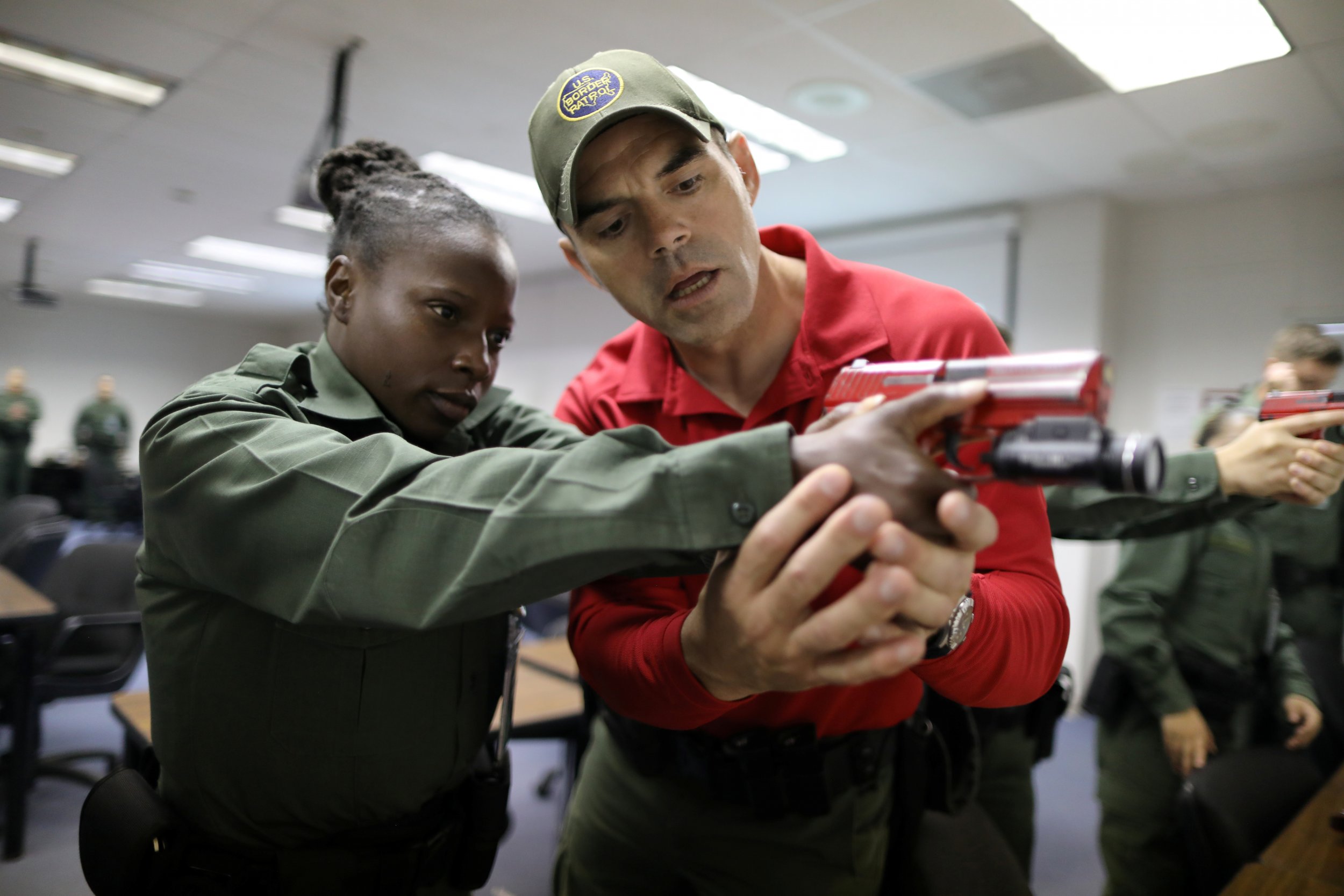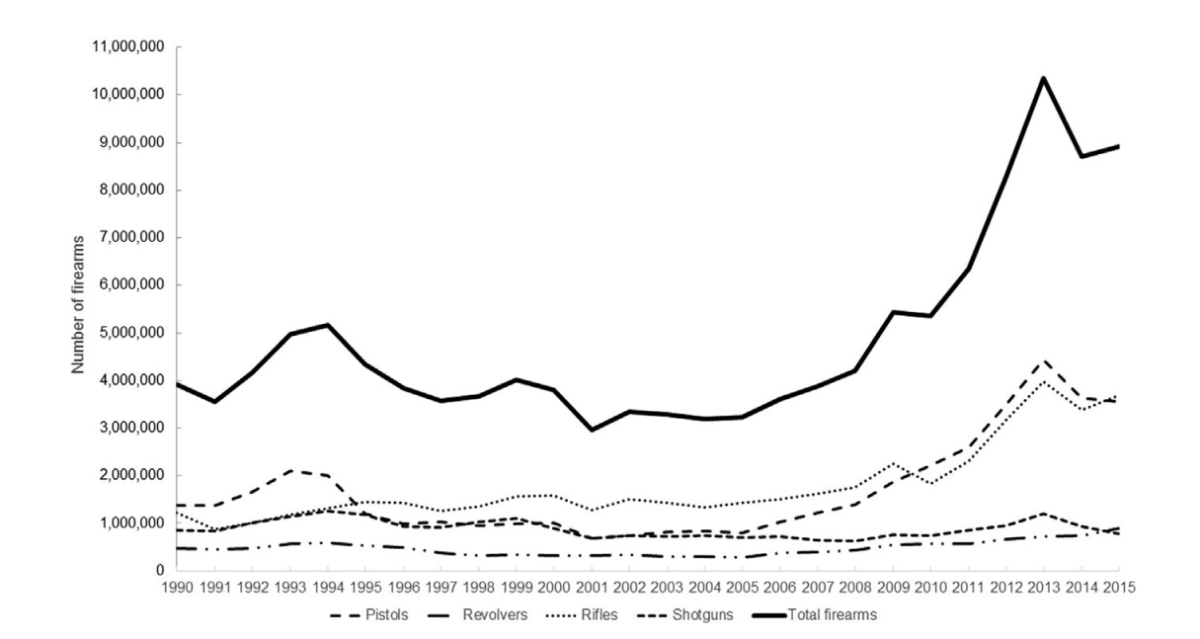
People are increasingly buying more lethal guns, and arming themselves for purposes of protection rather than for hunting or recreation, new research shows.
In a study of gun manufacturing and sales from 1990 to 2015, published in the American Journal of Preventive Medicine, researchers shows that the production of larger-caliber handguns skyrocketed in this time period. The paper found that since 1994, the manufacture of .38-caliber guns rose 12-fold, with nearly 820,000 of the pistols produced in 2015. The manufacture of 9 mm guns also increased seven-fold in this 15-year stretch, while those larger than 9 mm jumped 150 percent.
The study authors note that 3 million to 5 million firearms were produced each year from 1990 to 2005, but then grew exponentially, from 3.2 million firearms in 2005 to a peak of 10.3 million in 2013. The number has since come down a bit, but remain high, with nearly nine million firearms produced in 2015, the most recent year for which data are available. (The number of guns bought closely tracks the number manufactured.)
Not only are more people buying more deadly firearms, but these firearms—like .38-caliber pistols—are often compact and easy to conceal.
Lead investigator Michael Siegel, a physician and researcher at Boston University School of Public Health, says the data show that people increasingly view guns as being primarily useful in self-defense, rather than being chiefly used for hunting and recreation.
"The overall picture we're getting: There's an increasing acceptance among gun owners for the use of firearms, especially handguns, for self-defense," Siegel says.
In the past, most gun owners reported using guns mostly for sports and hunting. In 2000, for example, polls show that two-thirds of gun owners report using them and owning them for these reasons. But in 2013, just over a third said they owned guns to hunt, while 60 percent said they owned them to protect themselves.

The study helps explain why the gun debate is so fractious and controversial. "Gun owners look to these weapons as a source of security and freedom... and public health practitioners need to recognize this reality," Siegel says.
Anupam Jena, a researcher and physician at Harvard Medical School who wasn't involved in the study, notes that while the number of shootings per capita has risen, deaths have stayed about level, as medical care for gunshot wounds has improved.
Unfortunately for people who buy a gun for self-defense, purchasing a firearm significantly increases the likelihood that the buyer will be involved in a violent injury or death, especially by suicide. However, if you're worried about your safety and feel the need to buy a gun, this statistic, which applies to society as a whole, probably isn't going to be very persuasive, Jena says.
"The difficulty is whether you look at it from an individual or societal level," Jena says. "As an individual who's worried and wants to do something to protect themselves—it doesn't matter what the overall statistics are. From their perspective it would be rational... but if [more people buy more guns], we know from the data that that's associated with higher levels of gun violence."
Meanwhile, a study published Monday in the journal Pediatrics showed that shootings are now the third leading cause of death, and that an average of 5,790 children in the United States annually go to to emergency rooms for gun-related injuries.
Uncommon Knowledge
Newsweek is committed to challenging conventional wisdom and finding connections in the search for common ground.
Newsweek is committed to challenging conventional wisdom and finding connections in the search for common ground.
About the writer
Douglas Main is a journalist who lives in New York City and whose writing has appeared in the New York ... Read more
To read how Newsweek uses AI as a newsroom tool, Click here.








